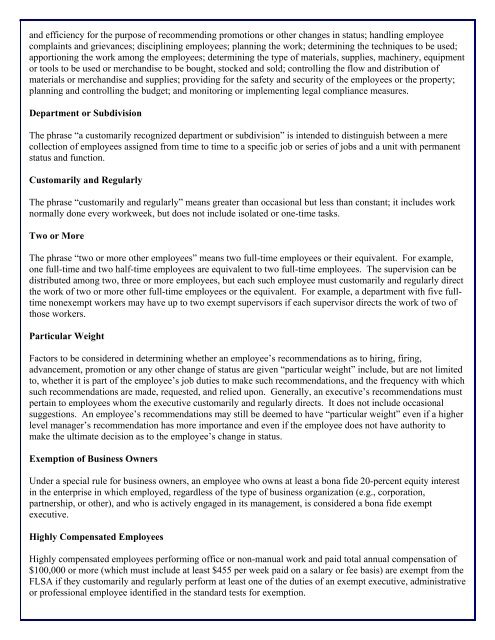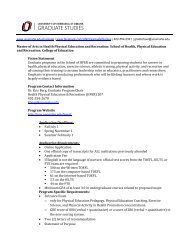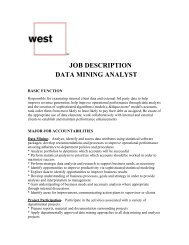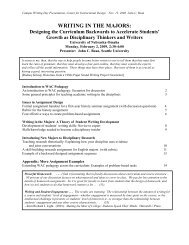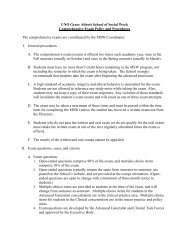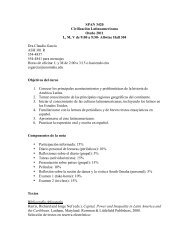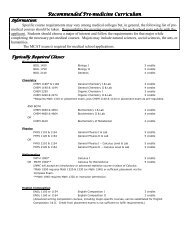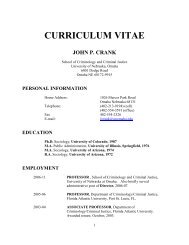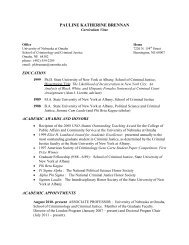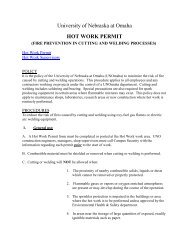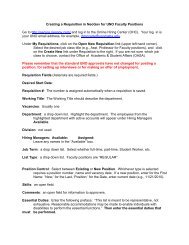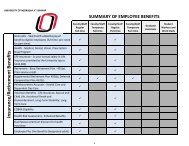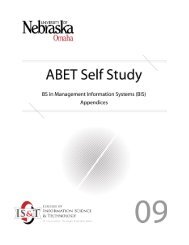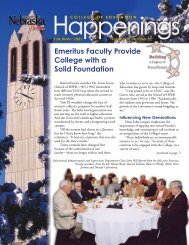Exemption for Executive Employees Under the Fair Labor Standards ...
Exemption for Executive Employees Under the Fair Labor Standards ...
Exemption for Executive Employees Under the Fair Labor Standards ...
Create successful ePaper yourself
Turn your PDF publications into a flip-book with our unique Google optimized e-Paper software.
and efficiency <strong>for</strong> <strong>the</strong> purpose of recommending promotions or o<strong>the</strong>r changes in status; handling employee<br />
complaints and grievances; disciplining employees; planning <strong>the</strong> work; determining <strong>the</strong> techniques to be used;<br />
apportioning <strong>the</strong> work among <strong>the</strong> employees; determining <strong>the</strong> type of materials, supplies, machinery, equipment<br />
or tools to be used or merchandise to be bought, stocked and sold; controlling <strong>the</strong> flow and distribution of<br />
materials or merchandise and supplies; providing <strong>for</strong> <strong>the</strong> safety and security of <strong>the</strong> employees or <strong>the</strong> property;<br />
planning and controlling <strong>the</strong> budget; and monitoring or implementing legal compliance measures.<br />
Department or Subdivision<br />
The phrase “a customarily recognized department or subdivision” is intended to distinguish between a mere<br />
collection of employees assigned from time to time to a specific job or series of jobs and a unit with permanent<br />
status and function.<br />
Customarily and Regularly<br />
The phrase “customarily and regularly” means greater than occasional but less than constant; it includes work<br />
normally done every workweek, but does not include isolated or one-time tasks.<br />
Two or More<br />
The phrase “two or more o<strong>the</strong>r employees” means two full-time employees or <strong>the</strong>ir equivalent. For example,<br />
one full-time and two half-time employees are equivalent to two full-time employees. The supervision can be<br />
distributed among two, three or more employees, but each such employee must customarily and regularly direct<br />
<strong>the</strong> work of two or more o<strong>the</strong>r full-time employees or <strong>the</strong> equivalent. For example, a department with five fulltime<br />
nonexempt workers may have up to two exempt supervisors if each supervisor directs <strong>the</strong> work of two of<br />
those workers.<br />
Particular Weight<br />
Factors to be considered in determining whe<strong>the</strong>r an employee’s recommendations as to hiring, firing,<br />
advancement, promotion or any o<strong>the</strong>r change of status are given “particular weight” include, but are not limited<br />
to, whe<strong>the</strong>r it is part of <strong>the</strong> employee’s job duties to make such recommendations, and <strong>the</strong> frequency with which<br />
such recommendations are made, requested, and relied upon. Generally, an executive’s recommendations must<br />
pertain to employees whom <strong>the</strong> executive customarily and regularly directs. It does not include occasional<br />
suggestions. An employee’s recommendations may still be deemed to have “particular weight” even if a higher<br />
level manager’s recommendation has more importance and even if <strong>the</strong> employee does not have authority to<br />
make <strong>the</strong> ultimate decision as to <strong>the</strong> employee’s change in status.<br />
<strong>Exemption</strong> of Business Owners<br />
<strong>Under</strong> a special rule <strong>for</strong> business owners, an employee who owns at least a bona fide 20-percent equity interest<br />
in <strong>the</strong> enterprise in which employed, regardless of <strong>the</strong> type of business organization (e.g., corporation,<br />
partnership, or o<strong>the</strong>r), and who is actively engaged in its management, is considered a bona fide exempt<br />
executive.<br />
Highly Compensated <strong>Employees</strong><br />
Highly compensated employees per<strong>for</strong>ming office or non-manual work and paid total annual compensation of<br />
$100,000 or more (which must include at least $455 per week paid on a salary or fee basis) are exempt from <strong>the</strong><br />
FLSA if <strong>the</strong>y customarily and regularly per<strong>for</strong>m at least one of <strong>the</strong> duties of an exempt executive, administrative<br />
or professional employee identified in <strong>the</strong> standard tests <strong>for</strong> exemption.


